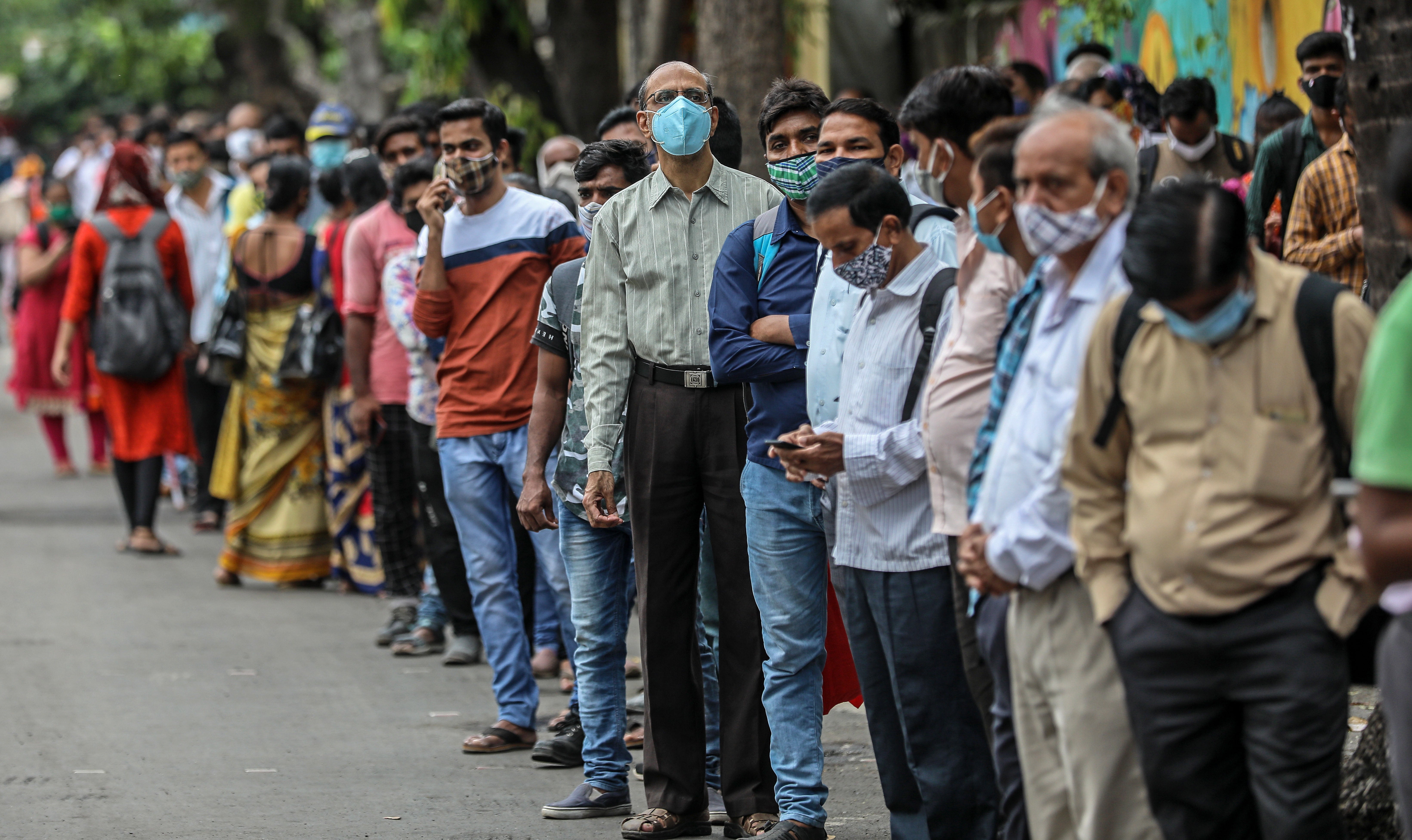India coronavirus: States and cities start to reopen as second wave recedes
As restrictions ease, experts have raised concerns that the virus is still spreading fast in rural India

Your support helps us to tell the story
From reproductive rights to climate change to Big Tech, The Independent is on the ground when the story is developing. Whether it's investigating the financials of Elon Musk's pro-Trump PAC or producing our latest documentary, 'The A Word', which shines a light on the American women fighting for reproductive rights, we know how important it is to parse out the facts from the messaging.
At such a critical moment in US history, we need reporters on the ground. Your donation allows us to keep sending journalists to speak to both sides of the story.
The Independent is trusted by Americans across the entire political spectrum. And unlike many other quality news outlets, we choose not to lock Americans out of our reporting and analysis with paywalls. We believe quality journalism should be available to everyone, paid for by those who can afford it.
Your support makes all the difference.Major states and cities in India, including the national capital Delhi, on Monday began easing restrictions to allow more movement and economic activities as the number of Covid-19 infections fell to a two-month low.
India reported just over 100,000 new cases in the past 24 hours, the lowest in two months and a long way down from last month's peak of well over 400,000, taking its overall tally to 28.9 million cases. India added 2,427 deaths on Monday, also down significantly from its peak, and total deaths stand at 349,186, health ministry data showed.
As Delhi began the unlock process on Monday, heavy traffic was seen on the roads. All private offices in Delhi have been allowed to resume operations with 50 per cent staff.
Delhi chief minister Arvind Kejriwal has also allowed markets and malls to open on an odd-even basis. This means shops in a market will open on alternate days according to the odd or even number assigned to them by local traders’ associations.
Metro services in the national capital also resumed with 50 per cent seating capacity. Migrant workers were also seen returning to Delhi as restrictions eased on Monday – government data suggest some 800,000 left to return to their villages as cases soared in April and May.
Delhi went into a lockdown on 19 April as a devastating second wave of the pandemic brought much of India’s healthcare system to its knees. Delhi reported just 381 new cases on Sunday and had a test positivity rate of less than 1 per cent.
Even as other cities announce similar measures to relax restrictions, concerns have been raised that the virus is still spreading fast in rural India and that infections there are not being counted due to limited testing.
Experts have said that both the cases and deaths have been severely undercounted and could be much higher than the official data. Some experts also fear that the restrictions are being relaxed too soon, according to the Associated Press.
Maharashtra, one of the worse-hit states, has also eased restrictions based on a falling positivity rate and occupancy of oxygen beds.
Restaurants, gyms and salons were allowed to reopen in the state capital Mumbai after nearly two months. However, malls and movie theatres will continue to remain closed.
Public buses were allowed to resume services with 100 per cent occupancy, with local reporters describing huge crowds returning to bus depots in the city.
Other Indian states have also started to lift their own lockdown rules – India chose not to enforce a second national lockdown this year, rather leaving the matter up to individual states. While Punjab has extended curbs till 15 June, it has allowed shops to remain open for longer and private offices can function at 50 per cent capacity.
The reopening comes as states still struggle to vaccinate the population due to a shortage of doses. Less than 5 per cent of India’s population has been fully inoculated with both doses of either vaccine available here – Oxford-AstraZeneca’s “Covishield” and “Covaxin” developed by local pharmaceutical company Bharat Biotech.
On Monday, prime minister Narendra Modi addressed the country for the first time since the second wave began in earnest in late April. He said that the central government will again take over the vaccination drive from the states and a new arrangement will come into force in the next two weeks.
He said that from 21 June, the central government will provide free vaccines for all citizens who are above the age of 18. Private hospitals can directly procure 25 per cent of the vaccines being made in the country, but Mr Modi said they can only charge a maximum of Rs 150 (£1.46) per vaccination above the purchase price.
This comes after the Supreme Court of India severely criticised the central government’s vaccine policy, calling it “arbitrary and irrational.”
Under the previous policy that was implemented on 1 May for the 18-44 age group, the central government was receiving only 50 per cent of the vaccines produced by manufacturers and distributing to states. The remaining 50 per cent were being acquired by states and private hospitals directly.
Join our commenting forum
Join thought-provoking conversations, follow other Independent readers and see their replies
Comments